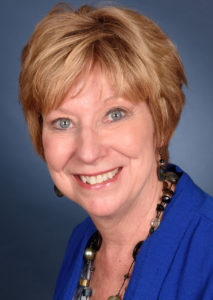Interest deepens for an international plan for social work regulation
Many ASWB members and staff attended the Council on Licensure, Enforcement & Regulation’s International Congress in Vancouver, British Columbia, in June. ASWB also hosted the business meeting of the International Federation of Social Work Regulators, an informal voluntary group of professional social work regulators from around the world.

ASWB Chief Executive Officer
IFSWR meets in conjunction with the meetings of the CLEAR International Congress and the International Federation of Social Workers, which are held in alternating years.
Because the ASWB Board recognizes the clear benefits of belonging to IFSWR and the leadership that ASWB has demonstrated within the group, the Board directed me to take the lead at the IFSWR business meeting to suggest a more formalized structure and organization for the group.
I am pleased to announce that IFSWR has agreed to form a workgroup that will be charged with incubating a more formal structure and organization for this group, similar to those of other health care professionals, such as nurses, doctors, and physical therapists. The seven attendees who volunteered to serve on the workgroup will conduct research, hold deliberations, and continue building relationships over the next months.
I look forward to the possibilities of crafting an international plan for social work regulation that reflects the importance of the social work profession in the world.
IFSWR was founded approximately 10 years ago by social work regulators representing Australia, Canada, England, New Zealand, Northern Ireland, the Republic of Ireland, Scotland, South Korea, the United States and territories, Wales, and Singapore. ASWB has been a member of IFSWR since its founding.
During her time as ASWB executive director, Donna DeAngelis represented ASWB and North America. When I became the CEO in 2013, I took over this responsibility and continued building relationships with our regulatory social work colleagues in other countries. As you may recall, “Build collaborative relationships with social work regulators outside the United States and Canada” was one of the strategic objectives from ASWB’s 2014–2018 Strategic Plan under the strategic initiative “Broaden stakeholder relationships for the regulatory community.”
Colleagues from IFSWR also served on the 2014–2015 ASWB International Technology Task Force, collaborating on the development of ASWB’s Model Regulatory Standards for Technology and Social Work Practice. With their expertise, ASWB was able to produce regulatory standards that make sense and are applicable on an international level.
Benefits of international regulatory perspectives
Over the years, I have attended meetings of the International Federation of Social Workers and the CLEAR International Congress with various ASWB Board presidents. In 2014 at the IFSW meeting in Australia, the social work regulators presented a panel discussion about hot topics in social work regulation around the world. Many attendees expressed great interest in my discussion of practice mobility and emerging electronic practice in North America.
Fast forward to 2018, when President Tim Brown and I attended the IFSW meeting in Dublin, Ireland. While we were there, we consulted with social work regulators from Britain and Ireland on crafting a practice mobility initiative for their five countries. We shared ASWB’s “lessons learned,” particularly the importance of identifying commonalities and respecting the due diligence that regulators conduct upon initial licensure.
During the 2019 CLEAR International Congress, I participated with my social work regulatory colleagues from Ireland and New Zealand in a panel workshop titled “Global Mobility Strategies: Finding Commonality and Consistency.” In this workshop, we discussed our efforts to respond to the “challenges and opportunities created by increasingly mobile workforces,” one of the congress themes.
I presented ASWB’s licensure by endorsement plan for mobility in North America. Ginny Hanrahan shared her challenges and concerns regarding the potential effects of Brexit on social work regulation in Ireland. Jan Duke from New Zealand gave attendees a fascinating look at the cultural issues facing migrant social workers moving there and discussed how respect for the Maori people is embedded in regulatory law in her country.
I look forward to the possibilities of crafting an international plan for social work regulation that reflects the importance of the social work profession in the world.

